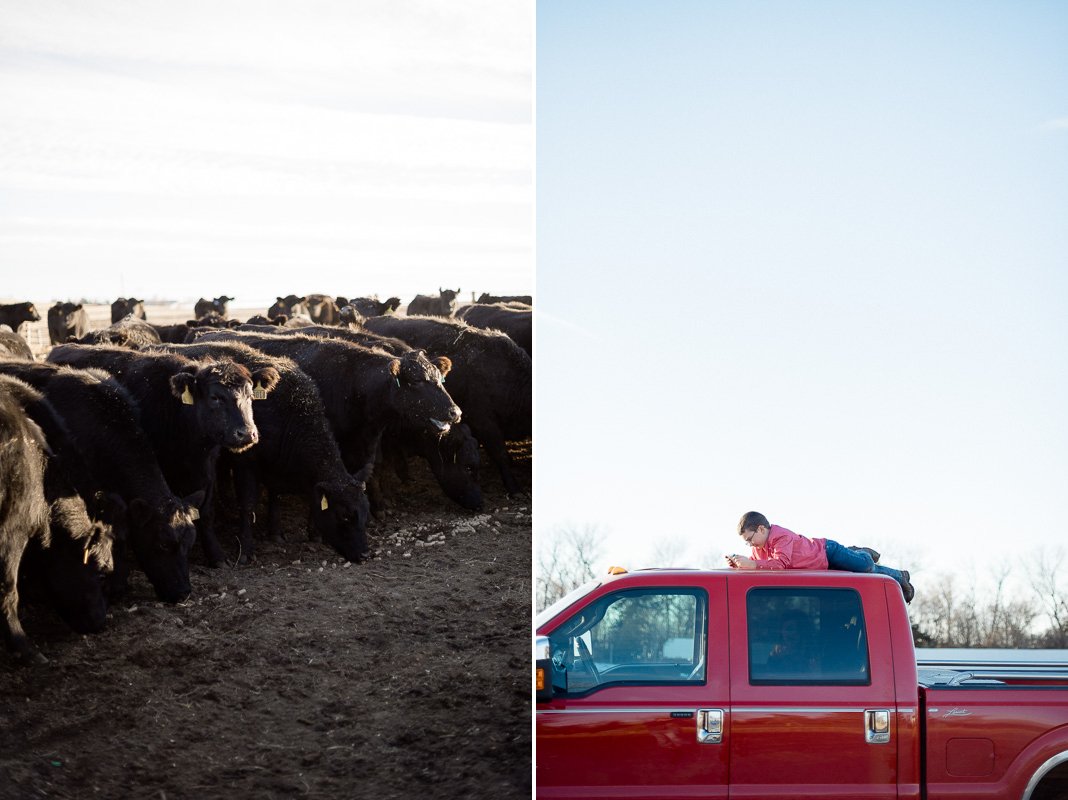Keeping Cows Comfy Through Cooler Temps
The crops may be harvested and the equipment put away, but there’s still plenty to do on South Dakota farms in the winter. This is especially true for farmers, like John Horter, who raise animals. John is the fifth generation in his family to grow soybeans, corn, wheat and alfalfa near Andover. He also works with his parents, wife Jaclyn and two adorable children, Dane and Raegan, to manage a cow/calf operation and a farm repair and supply business in their local community.
With 98 percent of South Dakota farms being family owned, it’s important for farmers like the Horters to practice sustainability and excellent animal care to continue feeding families in the future. So what does a typical winter day on the Horter family farm look like? How do they keep their cows healthy during cold weather? We visited with John to get the scoop on his winter activities.
Q: What is a typical day like on your farm in the winter?
A: A typical winter day starts with checking on and feeding our cattle. We do our best to make sure they eat at about the same time every day. Once they’re taken care of, we spend time in the shop fixing equipment and working at our store. We also plan for the next growing season by reviewing harvest data to determine investments in seed, fertilizer and equipment. This type of data and the technology in our tractors help us use minimal resources to grow healthy crops.
Q: How do you keep your cattle comfortable in unpredictable weather?
A: We make a plan for each situation. If it looks like it’s going to be warm, we put down extra bedding to keep them out of the mud. When it’s cold, we feed them more to ensure they have extra energy. If it is unusually stormy or cold, we bring them closer to windbreaks for protection or inside our barns. We add windbreaks and plant trees throughout the year to give them more protection out in the pasture. We are constantly looking for different ways to keep them safe and healthy no matter the weather.
Q: How do you make sure your cows stay healthy when it’s cold?
A: We work with an animal nutritionist to put together the right diet for every season. As the temperatures fall, we adjust their diets to provide more energy to keep them warm. Cattle grow thicker hair in the winter to protect themselves against cold temps so they can stay comfortable grazing in sub-zero weather.
We also rely on our veterinarian to help us treat our animals if they get sick. When we notice an issue, our veterinarian helps us diagnose the problem and can prescribe an antibiotic through a veterinary feed directive. This ensures that we only use antibiotics when necessary and in the right doses. It helps us treat our cattle safely and as directed by law.
Q: What’s your favorite part about raising animals on the farm?
A: It’s really fun to see the way our children interact with the animals. In the summer, we all check on the cattle in the pastures together. We enjoy welcoming new calves every spring and watching them grow. It’s so rewarding to be part of providing healthy, safe and affordable food for South Dakota families.
In a state with more cows than people, it’s easy to see why cow comfort is so important to many farmers and ranchers. Read how animal care and cover crops are helping Shawn and Kristy Freeland create a sustainable future for their Rapid City ranch.
Hungry for Truth is an initiative about food and farming funded by the South Dakota soybean checkoff. The goal is to connect South Dakotans with the farmers who grow and raise their food.






